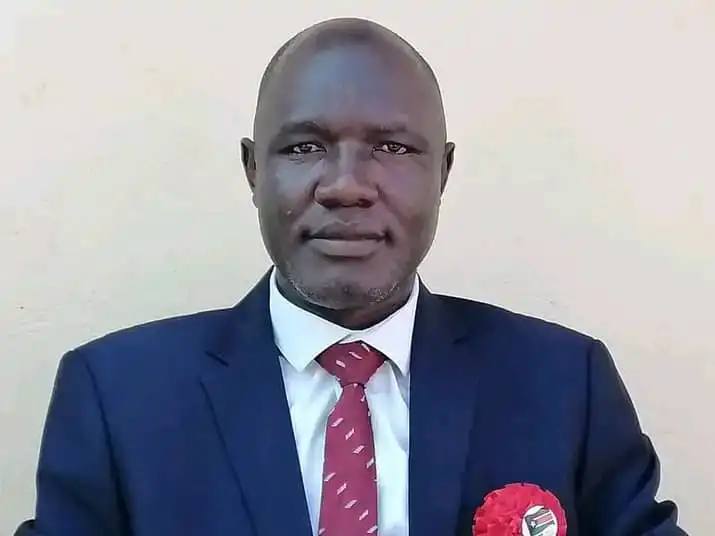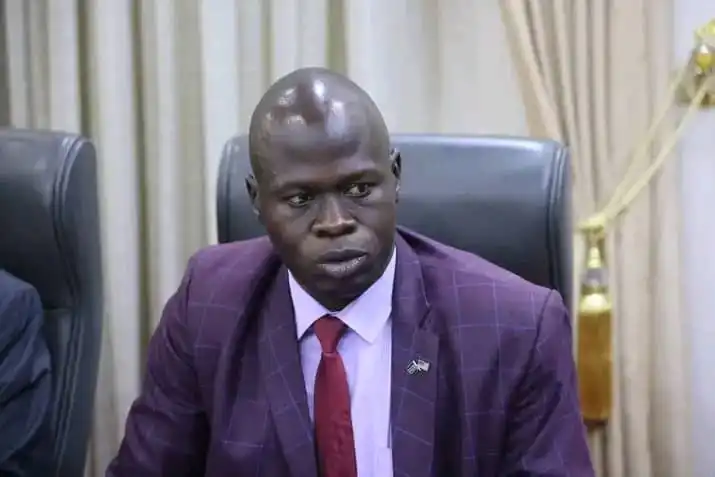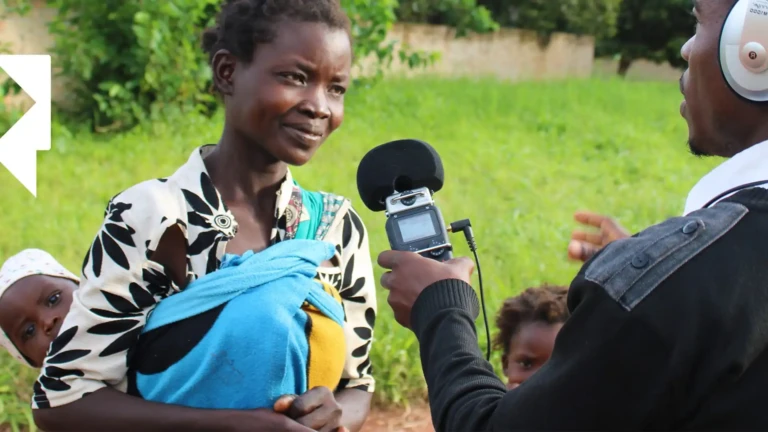![[OPINION] – Barriers to Peace in South Sudan: A Crisis of Choices, Not Destiny [OPINION] – Barriers to Peace in South Sudan: A Crisis of Choices, Not Destiny](https://radioyei.org/wp-content/uploads/2025/07/batali-gabriel-modi-mondurute.webp)
Batali Gabriel Modi (Mondurute) is a South Sudanese citizen, commentator and advocate for peace, justice and national unity. He writes as a concerned son of South Sudan, calling for collective accountability and a recommitment to the founding values of the nation.
OPINION | By Batali Gabriel Modi (Mondurute), Concerned Son of South Sudan
9th July 2025
South Sudan, the world’s youngest country, was born with immense hope but has grown up surrounded by heartbreak. When independence was declared on 9 July 2011, millions celebrated with tears and dancing, united under the rising flag of long awaited freedom. That moment symbolised victory not only over colonialism and Khartoum’s oppression, but over despair itself. The world cheered as a new nation emerged from the ruins of war, determined to pursue peace, dignity and self reliance.
More than a decade later, that initial promise has faded into a painful question: why has peace remained so distant? Why does every step forward seem followed by two steps back?
The answer is complex. It cannot be pinned on a single event or decision. Rather, it emerges from a tragic convergence of betrayal, silence, selfishness and squandered opportunity. Those entrusted with leadership fuelled division, corruption and violence. Atrocities committed against our own people are met with silence. Personal gain has overshadowed the national interest. And chances to reconcile and rebuild have repeatedly been ignored.
This is not simply a political failure. It is a moral crisis. The values meant to guide our independence have collapsed. South Sudan was meant to be a nation of second chances. Instead, it is stuck in a cycle of repeated mistakes. Peace has not been denied by fate. It has been delayed by the choices we continue to make.
Until we choose differently, until we prioritise unity over division, truth over propaganda and service over self interest, we will continue to drift further from the dream that gave us a nation.
1. Peace Agreements Prioritise Power, Not People
Peace deals like the 2015 ARCISS or the 2018 Revitalised Agreement have too often resembled elite bargains focused on power sharing rather than genuine reconciliation. Ministries are divided like spoils of war. Peace is treated as a pause for political negotiation, not a process to heal and rebuild shattered communities.
“When peace becomes a game of who gets what ministry and not how to reconcile communities, it loses legitimacy at the grassroots.”
2. Lack of Genuine Political Will
While leaders speak of peace, their actions betray an interest in self preservation over nation building. There is little urgency to disarm militias, repatriate refugees or implement transitional justice mechanisms. As long as the status quo benefits the powerful, peace remains postponed.
“You cannot sow conflict and harvest peace.” — African proverb
3. A Fragmented, Politicised Military
South Sudan lacks a unified national army. Armed groups remain loyal to individuals and regions. Efforts to integrate forces have been slow, partial and politicised, undermining national security and fuelling local conflict. Peace cannot thrive while everyone keeps weapons “just in case.”
4. Ethnic Chauvinism Is Undermining Nationhood
Ethnic chauvinism has eroded the national dream. Tribal identity now overshadows national identity. Governance, security and public appointments are often shaped by ethnic loyalty, not merit. This entrenches bitterness, deepens division and transforms every political disagreement into an ethnic crisis.
How can we promote peace while harbouring ethnic hatred in whispers? Real peace requires a national identity built on unity, justice and shared destiny, not suspicion and tribal rivalry.
5. Speaking Truth Is Treated Like Treason
In today’s South Sudan, those who speak the truth, activists, journalists, clergy and elders are often silenced, detained, disappeared or even killed. Telling the truth has become a dangerous act. But suppressed truth is not peace. It is postponed pain.
“What kind of peace excludes truth? What kind of future is built on fear?”
A society that punishes truth tellers is not stable. It is sick. True peace requires freedom of expression, not fear of death.
6. Justice and Reconciliation Have Been Betrayed
Millions have suffered displacement, death and trauma. Yet no one has truly apologised, and no one has been held accountable. The national dialogue was politicised and toothless. The Hybrid Court, promised in the peace agreement, remains unimplemented, avoided by those fearing exposure.
Without truth, there is no trust. Without justice, no peace. Pain buried alive eventually erupts. Healing cannot begin unless we confront the past, acknowledge wrongdoing and give victims a voice.
Final Thought: Peace Is a Choice
Peace is not blocked by divine curse. It is blocked by human decisions.
The Choice to Put Power Above People: Personal ambition takes precedence over public good.
The Choice to Promote Division Over Unity: Leaders exploit tribalism to stay in power.
The Choice to Reward Impunity Over Justice: Perpetrators are promoted, victims forgotten.
These choices poison our society. Until we reverse them, until we choose nation over tribe, healing over hatred, sacrifice over selfishness, peace will remain a hollow word repeated in speeches but absent from daily life.
Real peace is not the absence of bullets, it is the presence of justice, dignity and trust. It is schools filled with children, safe roads and the right to speak without fear.
It is time for every citizen, not just politicians to rise. To speak, build and act. To shape a South Sudan where peace is permanent, not a pause between wars.
That future is possible. But it begins with the choices we make today.
Batali Gabriel Modi (Mondurute) is a South Sudanese citizen, commentator and advocate for peace, justice and national unity. He writes as a concerned son of South Sudan, calling for collective accountability and a recommitment to the founding values of the nation.
Access Radio provides a platform for open, respectful and diverse perspectives to promote public dialogue and informed discussion. The station does not endorse any opinion expressed.
Join the conversation. Submit your opinions to: news [at] radioyei.org. We reserve the right to edit submissions for grammar.
Barriers to Peace in South Sudan_A Crisis of Will and Unity
Discover more from Access Radio Yei News
Subscribe to get the latest posts sent to your email.



![[OPINION] – Kakuwa Governance Rests on Chiefs, Not Urban Executives in Juba [OPINION] – Kakuwa Governance Rests on Chiefs, Not Urban Executives in Juba](https://radioyei.org/wp-content/uploads/2025/09/taban-kwaje-is-an-anthropologist-specialising-in-cultural-governance-and-community-identity-he-can-be-reached-at-taban-kwajegmail-com-768x553.webp)


